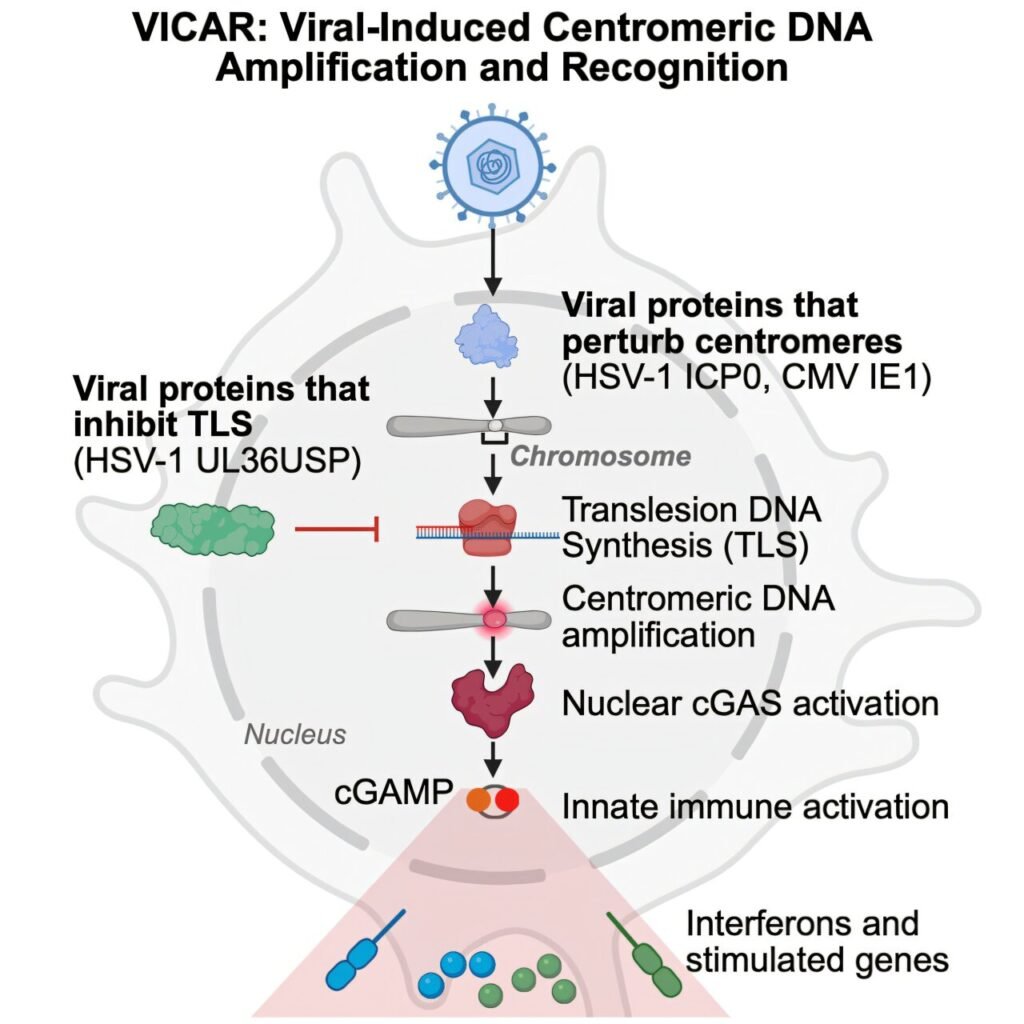Researchers have made a groundbreaking discovery linking centromeres, the vital areas of chromosomes responsible for cell division, to the immune system. This unexpected connection opens up new possibilities for developing improved immunotherapies for cancers and chronic inflammatory diseases. The study, published in the journal Cell, reveals that centromeres play a direct role in triggering an immune response.
The research was made possible by using virus mutants created by a team led by Prof. Dr. Lars Dölken, Director of the Institute of Virology at Hannover Medical School. The study was conducted at the Institut Curie in Paris, France, by Professor Nicolas Manel (INSERM) and Dr. Xavier Lahaye (CNRS) in collaboration with Professor Daniele Fachinetti (CNRS). The team utilized herpes simplex viruses type 1 (HSV-1) as their research tool, as these viruses can penetrate the cell nucleus, infect cells, and activate strong immune responses.
Professor Manel’s team discovered that viruses entering the cell nucleus disrupt centromere stability, leading to selective DNA replication in these chromosome regions. This abnormal DNA replication is recognized by the cell, activating its immune system and triggering a systemic antiviral response. This newfound mechanism provides a potential avenue for developing innovative immunotherapies against viruses and cancer.
The hope is that further exploration and understanding of these underlying mechanisms will pave the way for the development of novel treatments. The study, titled “Centromeric DNA amplification triggered by viral proteins activates nuclear cGAS,” was published in Cell and can be accessed through the DOI 10.1016/j.cell.2025.05.008.
This research sheds light on the intricate relationship between centromeres and immunity, offering new insights into how our immune system responds to viral infections and potential implications for cancer treatment. The findings open up promising avenues for future research and the development of targeted therapies to combat a range of diseases.
Provided by Hannover Medical School, this groundbreaking study highlights the importance of understanding the interplay between cellular processes and immune responses in disease pathology. Further research in this area could lead to significant advancements in immunotherapy and personalized medicine, offering hope for patients battling cancer and chronic inflammatory conditions.


